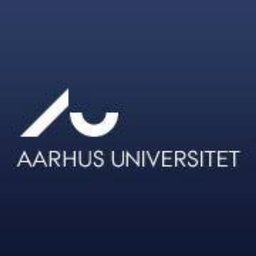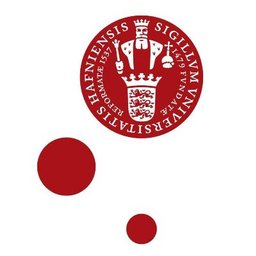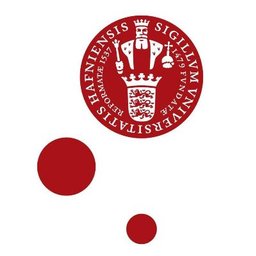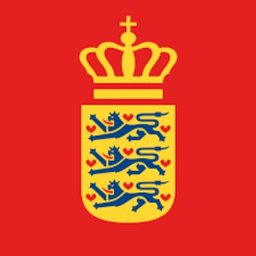Job Opportunities in Denmark

September 17, 2024
Aarhus Universitet
Tjele
OTHER
Postdoc in carbon and nutrient cycling in perennial grassland mixtures
The Department of Agroecology at Aarhus University, Denmark, is offering a fulltime postdoctoral position in perennial grassland mixtures for sustainable above- and belowground productivity, starting 1 January 2025, or as soon as possible thereafter. The position will be available for a 3-year period.
You will be part of a research environment focusing on interdisciplinary agroecological research. You will be contributing to specifically the area of establishing green biomass production systems that combine high productivity with perennial root systems securing high soil C inputs, efficient N utilization, and resilient cropping systems. And the main focus of your position will be to optimize, develop and document the effects of legume-based perennial grassland mixtures on above- and belowground plant components and carbon stocks. You will work experimentally with already established field experiments including those of the project “Grass Tools - Tools for improving grassland biomass production and delivering multiple ecosystem services” funded by Innovation Fund Denmark, as well as from related projects.
We expect that you will be an important part of the research environment and that you will contribute positively to the social working environment. We also expect that you will take part in our teaching activities and that you will report research results in high-impact scientific journals.
Your profile
We are searching for a highly motivated candidate who has:
Who we are
At the Department of Agroecology, our main goal is to contribute to sustainable solutions to some of the world’s biggest problems within the areas of soil, plants, animals, humans, and the environment. We want to make a difference by contributing to both fundamental knowledge generation and the attainment of sustainable production systems via innovative research, contracted policy advice, and education. We offer professional laboratories, greenhouses, semi-field, and field-scale research facilities, advanced computing capacities as well as an extensive national and international researcher network. The department consists of eight research sections with around 320 highly dedicated employees, of which approximately 50% are scientific staff. More information can be found here.
We believe in encouraging inclusion, acceptance, and understanding by employing staff who bring unique perspectives to our department.
What we offer
Special benefits when working in Denmark
Place of Work
The place of work is Campus Viborg, Blichers Allé 20, 8830 Tjele, Aarhus University, Denmark. The affiliation will be with the Department of Agroecology.
Contact information
More information can be obtained from Senior Researcher Jim Rasmussen, email: Jim.Rasmussen@agro.au.dk, Department of Agroecology, Aarhus University.
Deadline
All applications must be received no later than 15 October 2024.
You will be part of a research environment focusing on interdisciplinary agroecological research. You will be contributing to specifically the area of establishing green biomass production systems that combine high productivity with perennial root systems securing high soil C inputs, efficient N utilization, and resilient cropping systems. And the main focus of your position will be to optimize, develop and document the effects of legume-based perennial grassland mixtures on above- and belowground plant components and carbon stocks. You will work experimentally with already established field experiments including those of the project “Grass Tools - Tools for improving grassland biomass production and delivering multiple ecosystem services” funded by Innovation Fund Denmark, as well as from related projects.
We expect that you will be an important part of the research environment and that you will contribute positively to the social working environment. We also expect that you will take part in our teaching activities and that you will report research results in high-impact scientific journals.
Your profile
We are searching for a highly motivated candidate who has:
- A Ph D in agroecology, agronomy, applied biology, soil science or similar related to studies of agricultural production systems
- Collaborative skills and ability to participate actively in teams
- A fondness of taking the initiative and the motivation to pursue a scientific career
- Documented experience in scientific writing and publication in peer-reviewed scientific journals
- Research experience in some of the areas of: grassland mixture composition and investigation of plant root traits, estimating biological nitrogen fixation, implications on farming systems, and policy support, in situ isotope-based methods for plant-soil C and N cycling, or soil C fractionation methods for elucidating fate and stability of newly formed SOC.
- Teaching and supervision experience at the BSc and MSc level
- Interest and preferably experience in developing competitive national and international research applications
- Experience in planning and conducting field-work
- Insight into statistical analysis (preferably ‘R’).
Who we are
At the Department of Agroecology, our main goal is to contribute to sustainable solutions to some of the world’s biggest problems within the areas of soil, plants, animals, humans, and the environment. We want to make a difference by contributing to both fundamental knowledge generation and the attainment of sustainable production systems via innovative research, contracted policy advice, and education. We offer professional laboratories, greenhouses, semi-field, and field-scale research facilities, advanced computing capacities as well as an extensive national and international researcher network. The department consists of eight research sections with around 320 highly dedicated employees, of which approximately 50% are scientific staff. More information can be found here.
We believe in encouraging inclusion, acceptance, and understanding by employing staff who bring unique perspectives to our department.
What we offer
- An informal and multicultural research environment with high professionalism, where accountability, commitment, helpfulness, flexibility, and close collaboration is a prerequisite solving the core tasks
- A good social environment with activities and routines that make it possible to talk across and strengthen the inclusive relationship, and where mutual trust, respect, kindness, and professional sparring are emphasized
- A flexible workplace with a good work-life balance
- A workplace where we work actively with diversity, equity and inclusion
- An exciting and varied working environment, where two days rarely resemble each other. We are often busy, and we work creatively for solutions to societal challenges.
Special benefits when working in Denmark
- Subsidized preschool childcare and a free education system from primary school up to university level
- Universal health insurance as a resident of Denmark, including family members officially residing in Denmark
- Five weeks paid holiday per year
- In connection with childbirth: the right to have a total of 52 weeks shared maternal/paternal leave with full or partial salary pay.
Place of Work
The place of work is Campus Viborg, Blichers Allé 20, 8830 Tjele, Aarhus University, Denmark. The affiliation will be with the Department of Agroecology.
Contact information
More information can be obtained from Senior Researcher Jim Rasmussen, email: Jim.Rasmussen@agro.au.dk, Department of Agroecology, Aarhus University.
Deadline
All applications must be received no later than 15 October 2024.
Application procedure
Shortlisting is used. This means that after the deadline for applications – and with the assistance from the assessment committee chairman, and the appointment committee if necessary, – the head of department selects the candidates to be evaluated. All applicants will be notified whether or not their applications have been sent to an expert assessment committee for evaluation. The selected applicants will be informed about the composition of the committee, and each applicant is given the opportunity to comment on the part of the assessment that concerns him/her self. Once the recruitment process is completed a final letter of rejection is sent to the deselected applicants. Letter of reference
If you want a referee to upload a letter of reference on your behalf, please state the referee’s contact information when you submit your application. We strongly recommend that you make an agreement with the person in question before you enter the referee’s contact information, and that you ensure that the referee has enough time to write the letter of reference before the application deadline.
Unfortunately, it is not possible to ensure that letters of reference received after the application deadline will be taken into consideration. Formalities and salary range
Technical Sciences refers to the Ministerial Order on the Appointment of Academic Staff at Danish Universities under the Danish Ministry of Science, Technology and Innovation.
The application must be in English and include a curriculum vitae, degree certificate, a complete list of publications, a statement of future research plans and information about research activities, teaching portfolio and verified information on previous teaching experience (if any). Guidelines for applicants can be found here.
Appointment shall be in accordance with the collective labour agreement between the Danish Ministry of Taxation and the Danish Confederation of Professional Associations. Further information on qualification requirements and job content may be found in the Memorandum on Job Structure for Academic Staff at Danish Universities.
Salary depends on seniority as agreed between the Danish Ministry of Taxation and the Confederation of Professional Associations.
Aarhus University’s ambition is to be an attractive and inspiring workplace for all and to foster a culture in which each individual has opportunities to thrive, achieve and develop. We view equality and diversity as assets, and we welcome all applicants.
Research activities will be evaluated in relation to actual research time. Thus, we encourage applicants to specify periods of leave without research activities, in order to be able to subtract these periods from the span of the scientific career during the evaluation of scientific productivity.
Aarhus University offers a broad variety of services for international researchers and accompanying families, including relocation service and career counselling to expat partners.
Aarhus University also offers a Junior Researcher Development Programme targeted at career development for postdocs at AU.
The application must be submitted via Aarhus University’s recruitment system, which can be accessed under the job advertisement on Aarhus University's website.
Shortlisting is used. This means that after the deadline for applications – and with the assistance from the assessment committee chairman, and the appointment committee if necessary, – the head of department selects the candidates to be evaluated. All applicants will be notified whether or not their applications have been sent to an expert assessment committee for evaluation. The selected applicants will be informed about the composition of the committee, and each applicant is given the opportunity to comment on the part of the assessment that concerns him/her self. Once the recruitment process is completed a final letter of rejection is sent to the deselected applicants. Letter of reference
If you want a referee to upload a letter of reference on your behalf, please state the referee’s contact information when you submit your application. We strongly recommend that you make an agreement with the person in question before you enter the referee’s contact information, and that you ensure that the referee has enough time to write the letter of reference before the application deadline.
Unfortunately, it is not possible to ensure that letters of reference received after the application deadline will be taken into consideration. Formalities and salary range
Technical Sciences refers to the Ministerial Order on the Appointment of Academic Staff at Danish Universities under the Danish Ministry of Science, Technology and Innovation.
The application must be in English and include a curriculum vitae, degree certificate, a complete list of publications, a statement of future research plans and information about research activities, teaching portfolio and verified information on previous teaching experience (if any). Guidelines for applicants can be found here.
Appointment shall be in accordance with the collective labour agreement between the Danish Ministry of Taxation and the Danish Confederation of Professional Associations. Further information on qualification requirements and job content may be found in the Memorandum on Job Structure for Academic Staff at Danish Universities.
Salary depends on seniority as agreed between the Danish Ministry of Taxation and the Confederation of Professional Associations.
Aarhus University’s ambition is to be an attractive and inspiring workplace for all and to foster a culture in which each individual has opportunities to thrive, achieve and develop. We view equality and diversity as assets, and we welcome all applicants.
Research activities will be evaluated in relation to actual research time. Thus, we encourage applicants to specify periods of leave without research activities, in order to be able to subtract these periods from the span of the scientific career during the evaluation of scientific productivity.
Aarhus University offers a broad variety of services for international researchers and accompanying families, including relocation service and career counselling to expat partners.
Aarhus University also offers a Junior Researcher Development Programme targeted at career development for postdocs at AU.
The application must be submitted via Aarhus University’s recruitment system, which can be accessed under the job advertisement on Aarhus University's website.
We regret to inform you that this job opportunity is no longer available
Latest Job Opportunities
October 16, 2024
Byggehuset Danmark
Erfaren Tømrer søges til spjæld og renoveringsprojekter i Vejle.
Vejle
OTHER
View Details

October 16, 2024
Sunset Boulevard
Servicemedarbejdere deltid/fuldtid under 18, (Sønderborg)
Sønderborg
OTHER
View Details
Similar Jobs

September 12, 2024
Københavns Universitet
211-1950/24-2I Postdoctoral Positions in Mathematics at the Department of Mathematical Sciences
København
OTHER
View Details
September 16, 2024
KU - SCIENCE - IFRO
Postdoc position in Innovation and Sustainability Transitions
Frederiksberg
OTHER
View Details
September 12, 2024
Udenrigsministeriet
Postdoctoral position within paleoceanography
København
View Details
September 17, 2024
Københavns Universitet
Postdoctoral position in using AI and XR for learning at the Virtual Learning Lab
København
View DetailsSeptember 16, 2024
KU- SCIENCE - CHEM og MATH og NBI-HCØ
Postdoc in nucleotide drug delivery
København
OTHER
View DetailsSeptember 16, 2024
Psykiatrisk Center Ballerup
Postdoctoral researcher in eating disorders
Ballerup
OTHER
View DetailsNew Jobs from This Company

October 16, 2024
Aarhus Universitet
Postdoc in low-temperature nanoscale angle-resolved photoemission (nanoARPES) on 2D materials and devices
Aarhus
OTHER
View Details
October 16, 2024
Aarhus Universitet
Tandplejer til undervisning af tandplejer- og tandlægestuderende, Institut for Odontologi og Oral Sundhed
Aarhus
OTHER
View Details
October 16, 2024
Aarhus Universitet
Studiejob som formidler i Kemishow ved Institut for Kemi
Aarhus
OTHER
View Details
October 16, 2024
Aarhus Universitet
Instruktor til Logistik og økonomistyring
Aarhus
OTHER
View Details
October 16, 2024
Aarhus Universitet
Studenterstudievejledere til Psykologi - Aarhus BSS Studier - Aarhus Universitet
Aarhus
OTHER
View Details